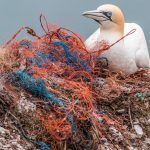EU environment ministers approved Council conclusions that will serve as the EU’s general negotiating position for the 27th United Nations Climate Change conference (COP 27).
All eyes will be on us in Sharm El-Sheikh. The EU has always been at the forefront of climate action and we will continue to lead by example. Protecting our planet for future generations requires a strong common global action. I am glad the EU has proved today that it is serious in its ambitions.
Anna Hubáčková, Czech minister of the environment.
In its conclusions, the Council highlighted that global ambition must substantially increase to keep the 1.5°C objective within reach, in line with the Paris Agreement, and calls on all countries to come forward with ambitious targets and policies, in particular major economies, to revisit and strengthen their NDCs in time for COP 27.
The Council also renewed the strong commitment made by the EU and its member states to continue scaling up their international climate finance and calls on all countries to scale up their efforts to mobilise finance from all sources to support climate action and to mainstream climate in all financial flows.
- Climate change: what the EU is doing (background information)
- Council sets out EU position for UN climate summit in Sharm El-Sheikh (COP27) (press release 24 October 2022)
Biodiversity Summit COP 15
The Council approved conclusions that will serve as the EU’s general negotiating position for the 15th United Nations Biodiversity Conference (COP 15).
This will be a breakthrough conference. World leaders will gather to agree on the global protection of our biodiversity. We are already witnessing a serious decline of different species and it is time to act. I am glad the EU agreed on a strong position for the biodiversity summit. Protecting our ecosystems is a common obligation for us as humanity.
Anna Hubáčková, Czech minister of environment
The intention of the conference is to adopt a post-2020 global biodiversity framework, setting out goals to guide global actions to protect and restore nature into the next decade.
The Council in its conclusions called for the adoption of an ambitious, comprehensive and transformative post-2020 global biodiversity framework that includes long-term 2050 goals, 2030 intermediate outcomes and action-oriented 2030 targets that effectively and simultaneously address the direct and indirect drivers of biodiversity loss.
- Council approves conclusions for UN biodiversity summit in Montreal (COP15) (press release, 24 October 2022)
- Biodiversity: how the EU protects nature (background information)

Deforestation: causes and how the EU is tackling it
|
Industrial emissions
Ministers held a policy debate on a proposal to revise the Industrial Emissions Directive. The proposal aims at guiding the investments in large scale industrial installations to reach the goal of a zero-pollution, competitive, climate-neutral economy by 2050. Ministers exchanged views on extending the scope of the Directive to include additional types of livestock farms and the mechanism for penalties and compensations for health damages at EU level.
Ministers underlined the importance of the Industrial Emissions Directive and the important role it played in the reduction of industrial emissions and air pollution in general. As regards the agricultural aspects of the proposal, the debate showed broad recognition that these new elements contribute to reaching the European Green Deal goals on pollution. At the same time several member states expressed concerns about bringing small and medium-sized livestock farms under the scope of the directive. As regards penalties and compensations, many member states supported regulating the aspects related to compensations at the level of member states.
Other items on the agenda
The Council formally adopted a regulation on persistent organic pollutants, that are particularly harmful substances. The new regulation revises the annexes to the persistent organic pollutant regulation, introducing new chemicals on the list of these substances and restricting their presence in waste by strengthening the concentration limit values of certain substances. The new concentration limit values will ensure a higher protection of human health and the environment.
The Council adopted a decision authorising the Commission to negotiate on behalf of the EU an international agreement to end plastic pollution.
The Council also gave its final approval to the common charger directive. This means that in 2024, a USB-C port will become mandatory for a whole range of electronic devices such as mobile phones, tablets, and headphones. It will no longer be necessary to buy a different charger every time you purchase a new mobile phone or similar device: all of them can be recharged using the same charger.
Ministers adopted a new EU law which facilitates the timely purchase of and access to medicines, vaccines and raw materials, activates emergency funding and enables the monitoring of production facilities when another health crisis hits. This Council regulation on the supply of medical countermeasures constitutes one of the building blocks of the European Health Union.
Two other regulations – also adopted at the meeting – form part of the Health Union: a revised “cross-border threats to health” law and a strengthened European Center for Disease Prevention and Control (ECDC). They improve the EU’s capacities to respond to future pandemics and other cross-border health crises.
The Council adopted a regulation, which will establish a single window for customs. The new rules will set the appropriate conditions for digital collaboration between customs and partner competent authorities at the EU’s external borders. This is expected to make international trade easier, shorten customs clearance times and reduce the risk of fraud.
The Council also adopted, without discussion, the other items included in the lists of ‘A-items’.
Other business
Under any other business the presidency provided the state of play of the Environmental Crime Directive. The proposal is discussed under the Justice and Home Affairs Council. The presidency and the Commission updated ministers on the main recent international meetings. Belgium supported by Spain drew ministers’ attention to the Due Diligence Directive. Belgium provided ministers with information on per- and polyfluoroalkyl substances (PFASs) pollution. Slovenia, supported by Bulgaria, Greece, Spain, Cyprus, Austria and Portugal, informed ministers on drought management at EU level. Spain provided information on the launch of an International Drought Resilience Alliance. The presidency informed ministers on a Conference on Designing Climate Resilient Landscapes.
During lunch, ministers had an informal discussion on the OECD’s perspectives in relation to the European Green Deal implementation and on current energy crisis in Europe, at the presence of Jo Tyndall, Environment Director at OECD.
Source: European Council







Leave a Reply